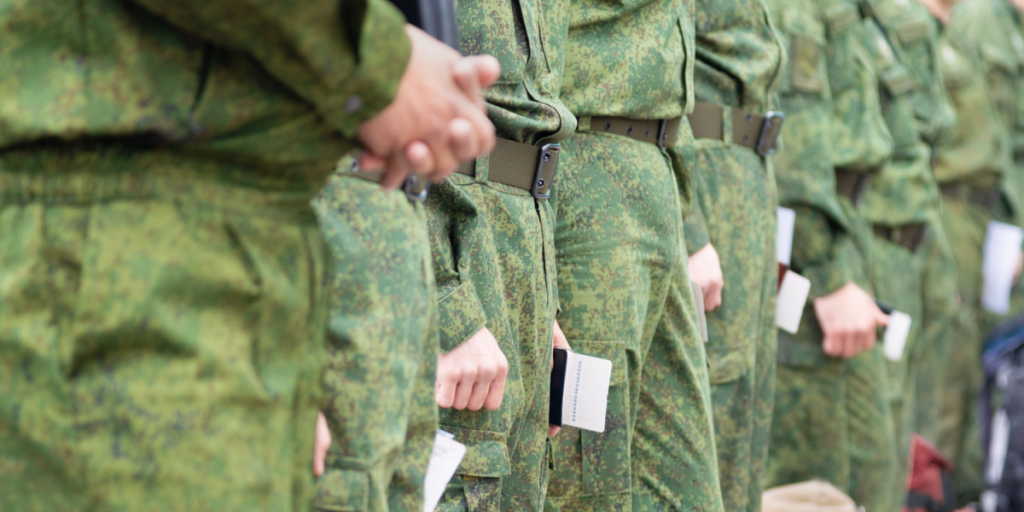Unrest is beginning to surface in several remote corners of Russia, far from the large urban centers that usually shape national debate.
Others are reading now
Families in these regions say they are carrying a burden that others are spared.
Their concerns are emerging in public despite rapid responses from local authorities.
Deepening resentment
According to local media in Dagestan, a rare protest took place near Makhachkala when groups of women demanded that their relatives not be sent to fight in Ukraine.
They argued that poorer republics in the North Caucasus were being used as the primary suppliers of new troops, while wealthy regions in western Russia saw far fewer call-ups.
The women told reporters that their communities had not only met but exceeded recruitment quotas set in Moscow.
Also read
They insisted that despite high unemployment and low wages, officials continued to press them for more recruits.
They also appealed for a balanced system of military service and encouraged authorities to begin drafting in the western part of the Russian Federation.
Federal leaders, however, have continued to rely heavily on outlying territories.
Police detained several of the demonstrators and charged them with discrediting the armed forces.
Rural drain
Independent outlets inside Russia reported that republics in the south and regions in the Far East have become the main source of manpower for the army.
Also read
These areas contribute a far greater share of men of fighting age than cities in the wealthier west.
Some Caucasus regions have seen between 4 and 5 percent of men aged 18 to 50 deployed to the front.
The Far East has reported even higher figures. Sakhalin sent about 4.8 percent of men in that age group and Primorsky Krai sent around 4.7 percent.
Certain districts of Primorsky Krai reached about 7 percent. Moscow accounts for roughly 1.5 percent.
For residents of Dagestan, Kalmykia, Tatarstan and other low-income areas, military contracts remain one of the few paths to stable earnings.
Also read
According to Russian media, the promise of salaries and benefits attracts many men who lack access to other forms of employment.
Political calculations
Analysts cited by domestic and foreign media note that financial motives alone do not explain the scale of recruitment gaps.
They argue that the Kremlin avoids mobilizing men from larger cities where civic networks are stronger and resistance can escalate quickly.
The government was reminded of this risk during the partial mobilization of 2022 when protests broke out in Moscow and St. Petersburg before security forces intervened.
Large urban areas have more opportunities for organized pushback and greater media visibility.
Also read
Rural and remote regions, by contrast, depend more heavily on federal support and face limited chances to challenge official decisions.
Recruiters operate more freely in these communities, which helps wealthier regions avoid politically sensitive call-ups.
Trading quotas
Investigations published by independent Russian outlets describe unofficial practices in which cities such as Moscow, St. Petersburg and Krasnodar provide financial compensation to poorer regions in exchange for absorbing their mobilization quotas.
This allows wealthier areas to meet federal targets while sending few of their own residents to the front.
According to these reports, the arrangement is known to local officials and to military authorities.
Also read
As a result, a unit funded by a western city may consist largely of men from the Caucasus or the Far East.
Outlets such as Verstka have also documented cases in which homeless people, individuals with alcohol dependence, or people with disabilities were detained in large cities during police checks and then transferred to enlistment offices.
Disposable recruits
Those taken into custody often had no realistic chance to contest the situation. Several were pressured into signing contracts without understanding their implications.
Some only realized the consequences once they reached military units.
According to reporting by Verstka and other opposition media, these cases represent serious violations of basic rights.
Also read
Despite repeated accounts, no broad investigation has been launched. Critics argue that the armed forces focus entirely on a person’s ability to hold a rifle rather than on the legality of their recruitment.
For the Kremlin, they say, these individuals are treated as expendable.


